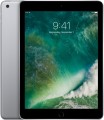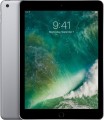CPU
The model name of the processor installed in the tablet.
The processor is the “heart” of the device. It is he who is responsible for performing all the computing operations necessary for the normal operation of the tablet, and largely determines the overall performance. Knowing the name of a specific processor model, you can easily find detailed information on it, incl. and comparison with other models.
The most popular chips these days are from
Qualcomm(in particular, the top solutions
Snapdragon 800 series and
Snapdragon 8 series),
MediaTek(budget and “mid-range”
MediaTek Helio processors and the line of advanced
MediaTek Dimensity chipsets with 5G support), and among Windows tablets
Intel processors (mainly the
Intel Core family) are often found. Quite a rarity are branded
Kirin processors from Huawei and Honor.
CPU speed
The clock speed of the processor installed in the tablet is actually the maximum number of operations performed by one processor core per second. This indicator is important for the speed of the system, but a high clock frequency in itself does not guarantee speed. The actual speed of the processor also depends on its architecture, the number of cores and many other features, and the overall speed of the device also depends on the amount of “RAM”, the installed OS, etc. Therefore, situations are not uncommon when
powerful advanced tablets have a lower CPU frequency than more modest models.
CPU cores
The number of individual cores provided by the tablet processor.
The core is the part of the processor that executes a single instruction stream. Accordingly, the more cores, the more threads the processor can simultaneously process and the higher its performance (ceteris paribus). On the other hand, numerous cores is not always an indicator of a high class processor and tablet as a whole. First, the actual performance of the chip depends on many other factors, and advanced dual-core processors often outperform inexpensive quad-core processors. Secondly, the development and cheapening of technologies has led to the fact that simple
quad-core CPUs have become quite affordable even for low-cost devices. And even
eight-core processors, which at one time were an unequivocal sign of advanced models, are increasingly found in relatively inexpensive tablets; the same can be said about relatively recent
processors with 10 cores. However it is worth noting that in such chips, the cores can be divided into main (with high performance) and additional (used in tasks that do not require power). For example, 8 cores can be divided into 4 main and 4 additional cores. However, such a division is often not a disadvantage, but an advantage: numerous full-fledged cores is rarely required in fact, and reduced power saves energy and improves battery life.
Graphics card
Model of the graphics card installed in the tablet. The graphics card in such devices is not a separate device, but part of the processor; however, she still has a clear specialization and is responsible for graphics.
Accordingly, the graphics capabilities of the tablet directly depend on the characteristics of the video accelerator. Theoretically, knowing the name, you can find detailed specifications of a graphics card, reviews, test results and other information and evaluate how it suits you. At the same time, in most cases there is no need to delve into such details — all system components, including the graphics card, are usually selected in such a way as to correspond to the general class of the tablet and the capabilities necessary for this class.
RAM
The amount of random access memory (RAM) installed in the tablet. This memory is used for direct data processing, and therefore its volume is one of the main indicators of system speed and power. However note that the optimal amount of RAM strongly depends on the OS used — different systems and even different versions of the same "OS" can vary greatly in terms of consumed resources. But models on the same OS can be compared with each other in terms of the amount of RAM.
As for specific values, indicators in
1 GB or less in our time are definitely a sign of a weak tablet.
2 GB and
3 GB can be called the entry level,
4 GB and
6 GB are middle class, and in the most advanced models,
8 GB, or even
16 GB can be installed (or even more) RAM.
AnTuTu Benchmark
The result shown by a device when undergoing a performance test (benchmark) in the AnTuTu Benchmark.
AnTuTu Benchmark is a comprehensive test designed specifically for mobile devices, primarily smartphones and tablets. It evaluates the performance of the processor, memory, graphics, and input/output systems, providing a clear impression of the system's capabilities. The better the performance, the higher the score. According to AnTuTu, top models are those that score more than 500,000 points.
As with any benchmark, this test does not provide absolute precision; for more details on measurement inaccuracies, see the "3DMark Gamer's Benchmark" section.
3DMark Gamer's Benchmark
The result shown by the device when passing the performance test (benchmark) 3DMark Gamer's Benchmark.
3DMark is a series of benchmarks originally designed to test the graphics performance of a device; later, these tests were supplemented by checking the capabilities of the processor. Testing is carried out primarily in terms of performance in games (in fact, the benchmark itself is described as “a game without the ability to influence the process”), however, given that modern games can have very high requirements, 3DMark is a fairly visual tool for assessing the overall performance of the system . And since the latest versions of the test are made cross-platform, it also makes it possible to compare devices under different operating systems and even different classes (for example, smartphones with tablets). The more points this or that model received on this test, the more performant it is.
It is worth noting that the results of any benchmark are usually quite approximate, because. they depend on many factors that are not directly related to the system — from the load of the device with third-party programs and ending with the air temperature during testing. The error due to these factors is usually on the order of 5-7 %; therefore, it is possible to speak of a significant difference between the two models only if the difference in their indicators goes beyond this error.
Geekbench
The result shown by the device when passing the performance test (benchmark) Geekbench.
Geekbench is a specialized benchmark designed for CPUs. Since version 4.0, the test has also been applied to graphics accelerators; towards the end of 2019, the benchmark was released under the number "5". The characteristics of portable gadgets usually provide data specifically for the CPU. During testing, Geekbench simulates the workloads that occur when performing real-world tasks, and takes into account both the capabilities of a single core and the efficiency of multiple cores running simultaneously. Thanks to this, the final results characterize well the capabilities of the processor in everyday use. In addition, the test is cross-platform and allows you to compare the CPUs of different devices (smartphones, tablets, laptops, PCs). The help information only lists the multi-core test values for CPU.
Full HD filming (1080p)
The resolution and maximum frame rate provided by the main camera when
recording Full HD (1080p) video at normal speed, without slow motion (if available).
The standard resolution for this format is 1920x1080. Note that this can be either the maximum shooting resolution or one of the relatively simple options in addition to more advanced standards (such as UltraHD 4K). At the same time, Full HD is considered more than a decent resolution by modern standards, and at the same time, it can be supported even by fairly simple and inexpensive tablets.
As for the frame rate, there are actually two values in normal shooting - Full HD 30 fps and
Full HD 60 fps. A higher frame rate allows you to achieve very smooth display of dynamic scenes - even fast-moving objects in the frame are seen as clearly as possible, with almost no blurring. However, the low shooting speed also has its advantages - it allows you to reduce the amount of material being shot. Therefore, tablets that support 60 fps may have the ability to reduce the frame rate to 30 fps. But speeds above 60 fps are already used for shooting slow-motion video (slow-mo); see "Slow-mo" for more on this.



